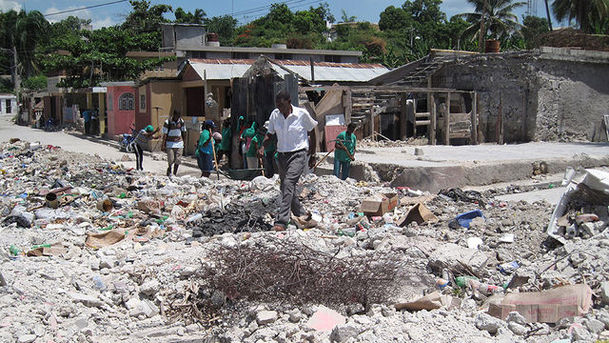Crossing Continents - Haiti

January's earthquake in Haiti left more than 200,000 dead and over a million homeless. Six months on there are still one and a quarter million people living in camps. As yet, there is still no resettlement plan. Progress appears to be painfully slow. The BBC's International Development Correspondent, Mark Doyle, who reported from Haiti in the immediate aftermath of the disaster, returns to ask if millions of dollars raised and the billions more pledged will help Haiti in the long run. Despite the devastation and tragedy wrought by the earthquake on the poorest nation in the Americas, some believed that it could signal a new beginning for Haiti, a country plagued for many years by poverty, corruption, political instability and violence. However, questions are being asked about who is in charge, who is deciding things and for whose benefit. There are also significant concerns that the flood of money and the international organisations providing aid are distorting the local economy and making it impossible to build a self-sustaining economy. While the government talks of the need to decentralize the economy, to encourage people to leave the crowded capital Port au Prince and return to the countryside, so far there are few signs of how that is going to be achieved. And with the rainy season now begun, life for many of those living in camps, under tarpaulin, is deteriorating. History is not on Haiti's side. All past interventions by outsiders have been either disastrous for the Haitians or have failed to live up to their promise. No surprise, then, that there is growing cynicism that all the promises of help with materialise and bring about a better country. Producer: John Murphy.